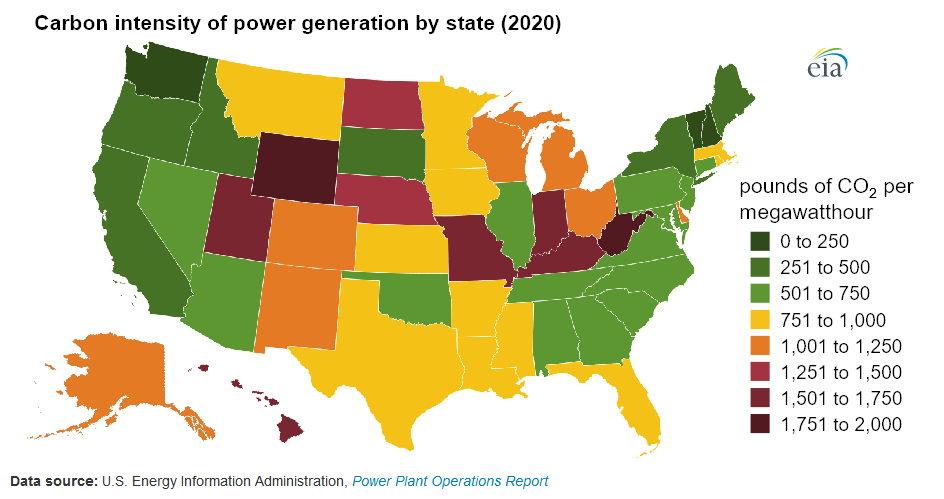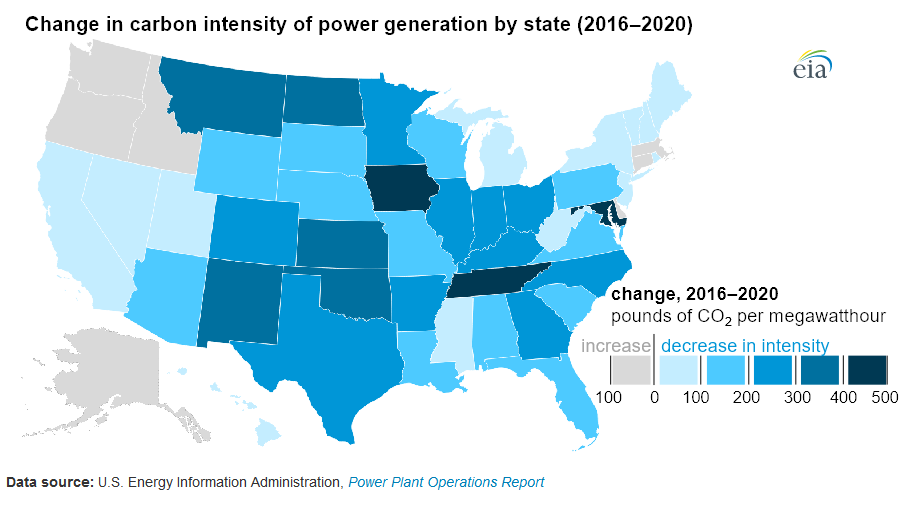tl;dr A full analysis of whether it makes sense to electrify your vehicle fleet depends on fuel cost and carbon intensity in your area and over the lifetime of the vehicle.
It depends on where you're getting your electricity.
Nobody gets "average" electricity. Carbon intensity of electricity generation in the US varies wildly from 0 to 250 g/MJ. An electric anything in Washington will be much greener than in West Virginia.
If we accept the 79g/MJ (627 lb/MWh) number for propane, then we can see that as of 2020 electricity is equivalent or better in all of the green states. And it will only get better...
Electrification gives you options, and is future proof.
As the US electricity grid continues to get cleaner, electric vehicles (and appliances) will also get cleaner.
New vehicles purchased today will be on the road for decades. Over their lifetime electric vehicles will continue to benefit as electricity gets cleaner, whereas fossil fueled vehicles will remain the same. When considering whether to electrify a fleet of vehicles, one must look not just at the state of things now, but also the state of things in the future. And clearly electricity is getting cleaner.
Electricity can be generated from many sources making it economically elastic. Whereas a fossil fueled vehicle must use that one fossil fuel. Changes in the market and production will impact the cost of running a fossil fueled vehicle to a much greater degree than an electric one.
What about renewable propane?
It is still scaling up. Energy.gov says the US produces 4.5 million gallons per year. Sounds like a lot until you realize the US produces 78 million gallons of conventional propane per day. The future of renewable propane is uncertain, whereas the problems of the US electrical grid are conventional and being solved.


